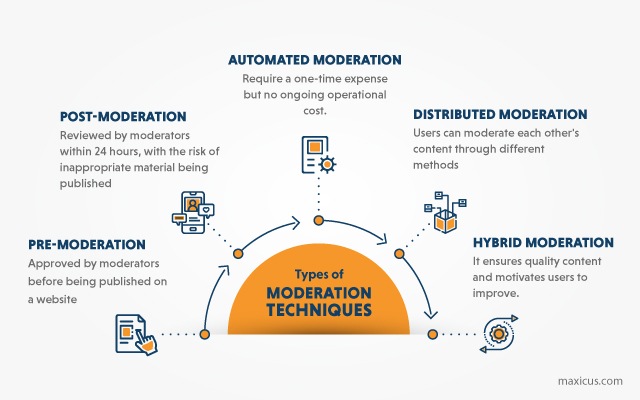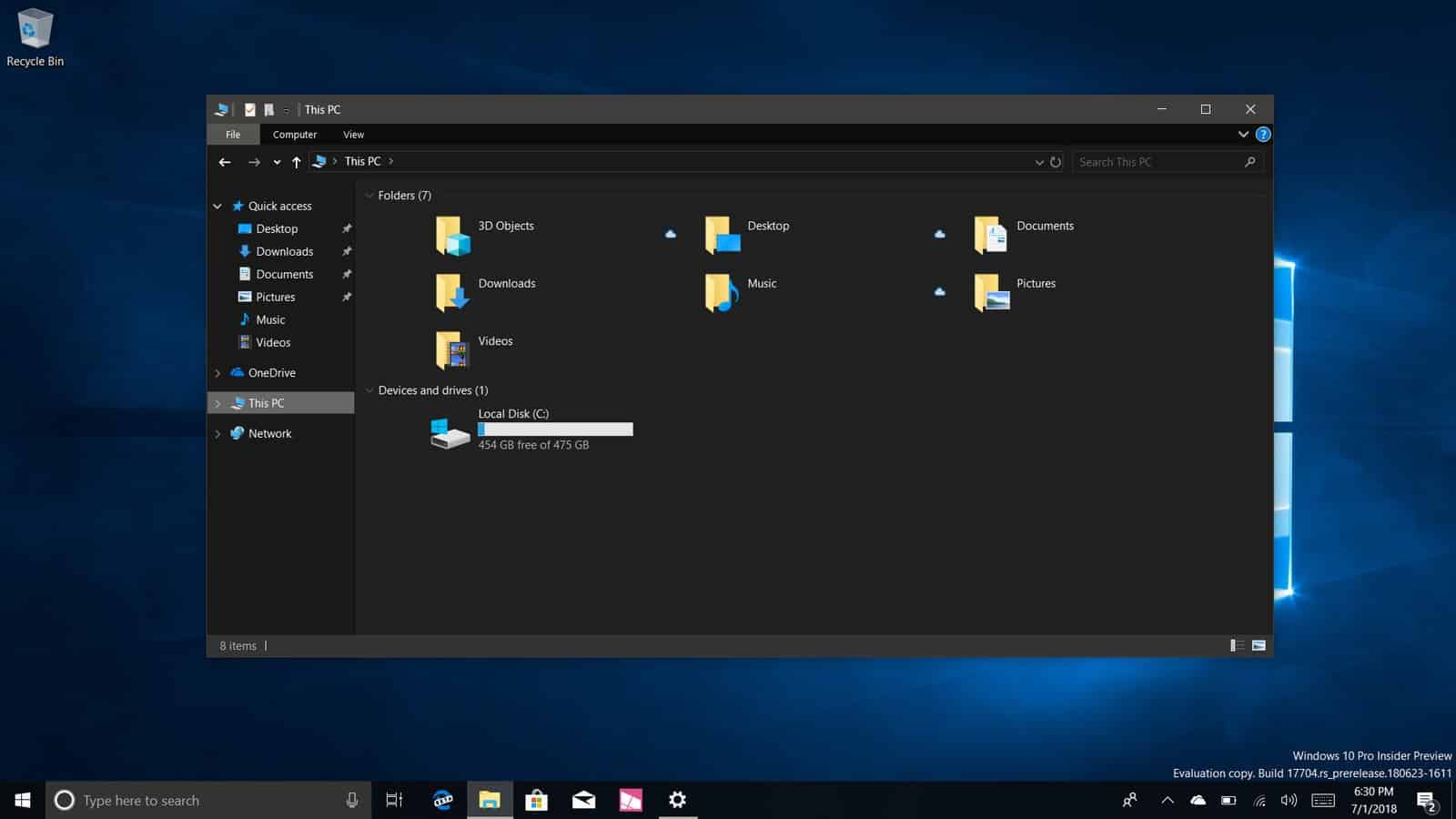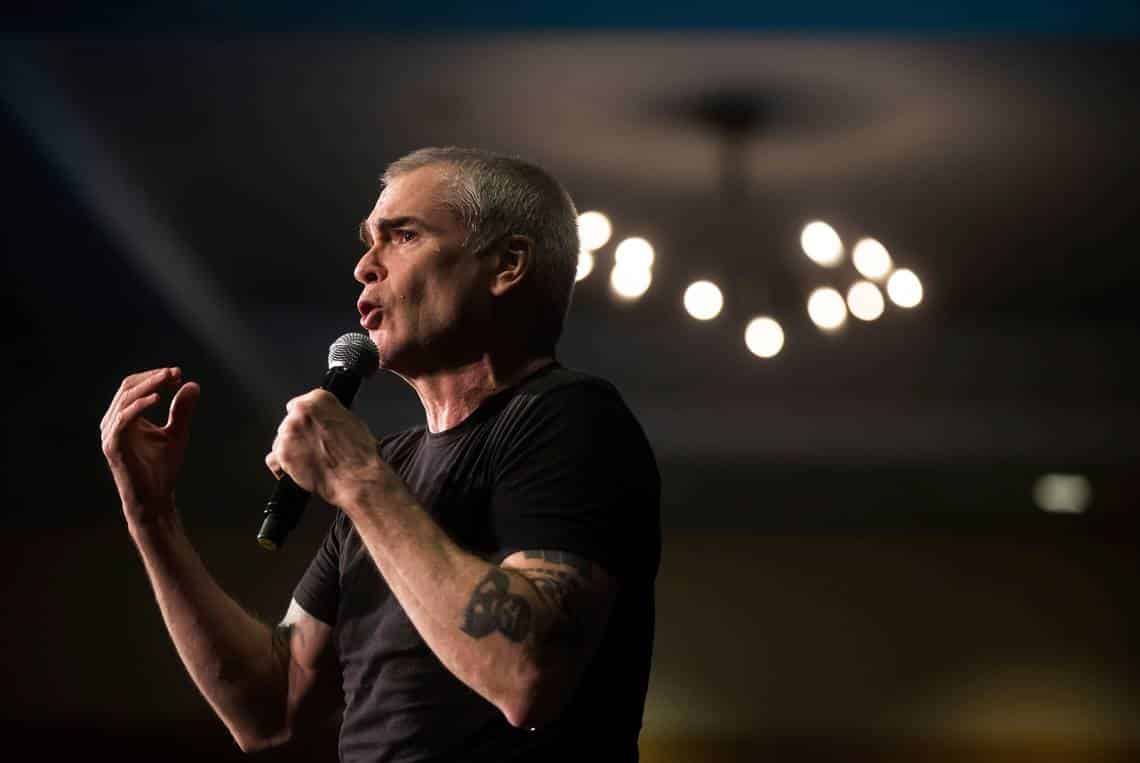Mastering Social Media Moderation for Online Success
Share
Social media has become an integral part of our lives, with millions of people worldwide using platforms such as Facebook, Twitter, and Instagram to connect with others, share information, and promote their businesses. However, with the rise of social media comes the need for effective moderation. Unmoderated social media platforms can hurt individuals and companies, leading to online harassment, the spread of misinformation, and a toxic online environment. To ensure online success, it is crucial to understand the importance of social media moderation and implement effective strategies to create a positive and supportive online community.

The Importance of Social Media Moderation for Online Success
Unmoderated social media platforms can negatively impact individuals and businesses. Without moderation, these platforms can become breeding grounds for cyberbullying, hate speech, and the spread of false information. Negative comments and feedback can damage a brand’s reputation and deter potential customers from engaging with its products or services. Additionally, unmoderated platforms can create a toxic online environment, discouraging users from participating in discussions or sharing their opinions.
On the other hand, social media moderation has numerous benefits for businesses and individuals. By actively moderating their social media platforms, companies can protect their brand reputation, maintain a positive online presence, and foster a supportive community of loyal customers. Moderation allows enterprises to promptly address negative comments and feedback, demonstrating their commitment to customer satisfaction. For individuals, social media moderation ensures a safe and respectful online environment where they can freely express themselves without fear of harassment or abuse.
Understanding the Role of a Social Media Moderator
A social media moderator is crucial in maintaining a positive and supportive online community. They are responsible for monitoring user-generated content, enforcing community guidelines, and addressing any issues or concerns that may arise. A good social media moderator possesses excellent communication skills, as they must interact with users professionally and respectfully. They also need to have a deep understanding of the platform they are moderating and the ability to stay up-to-date with the latest trends and developments in social media.
In addition to communication skills, a social media moderator should possess qualities such as empathy, patience, and the ability to remain calm under pressure. They need to handle negative comments and feedback with grace and professionalism while also being able to identify and address any potential issues or conflicts. A good moderator proactively identifies and addresses potential problems before they escalate and can effectively manage controversial topics and discussions.
Setting Guidelines for Social Media Moderation
Clear guidelines are essential for effective social media moderation. These guidelines provide a framework for moderators to follow, ensuring consistency and fairness in their actions. Guidelines should clearly outline what acceptable behavior is on the platform and what is not tolerated. They should also provide guidance on handling different types of content, such as hate speech or misinformation.
When creating moderation guidelines, it is important to involve key stakeholders such as community members or employees. This ensures that the guidelines reflect the values and expectations of the community or organization. It is also important to regularly review and update the guidelines as needed to adapt to changing circumstances or emerging issues.
Identifying and Addressing Negative Comments and Feedback
Negative comments and feedback are inevitable on social media platforms. However, it is important to have strategies to address them constructively. Different types of negative comments and feedback can occur on social media, including constructive criticism, trolling, and harassment.
Constructive criticism should be acknowledged and addressed respectfully. Businesses can use negative feedback as an opportunity for improvement by listening to their customers’ concerns and taking steps to address them. Trolling, on the other hand, is a deliberate attempt to provoke and disrupt discussions. It is important not to engage with trolls, as this only encourages their behavior. Instead, moderators should remove offensive or inappropriate content and block or ban repeat offenders.
Harassment is a serious issue that should be addressed promptly and decisively. Moderators should have clear guidelines for handling harassment, including reporting and blocking procedures. It is important to take all reports of harassment seriously and provide support to the victim. In some cases, it may be necessary to involve law enforcement or take legal action against the harasser.
Dealing with Trolls and Online Harassment
Trolls are individuals who deliberately provoke and disrupt online discussions. They thrive on attention and often go to great lengths to elicit a reaction from others. Dealing with trolls requires a combination of strategies, including ignoring their behavior, blocking or banning them from the platform, and reporting them to the appropriate authorities if necessary.
It is important not to engage with trolls, as this only fuels their behavior. Instead, moderators should focus on creating a positive and supportive online community by promoting respectful and constructive discussions. This can be done by setting clear guidelines for behavior, actively moderating discussions, and encouraging users to report any instances of trolling or harassment.
Online harassment is a serious issue that can profoundly impact individuals’ mental health and well-being. Moderators must take all reports of harassment seriously and provide support to the victim. This can include offering resources for counseling or legal assistance and taking immediate action to remove any offensive or inappropriate content.
Managing Controversial Topics and Discussions on Social Media
Managing controversial topics and discussions on social media can be challenging, as they often elicit strong emotions and differing opinions. However, creating a respectful and constructive environment where these discussions occur is possible.
One strategy for managing controversial topics is to set clear guidelines for behavior. These guidelines should outline what is acceptable and respectful behavior and what is not tolerated. Moderators should actively enforce these guidelines and remove any offensive or inappropriate content.
Another strategy is to actively moderate discussions and intervene when necessary. This can involve stepping in to address any instances of disrespectful or inflammatory comments and redirecting the discussion toward more constructive and respectful dialogue. Moderators should also proactively identify potential conflicts or issues and take steps to address them before they escalate.
Creating a Positive and Supportive Online Community
Creating a positive and supportive online community is essential for fostering engagement and loyalty. A positive online community is one where users feel safe to express themselves, share their opinions, and engage in discussions without fear of harassment or abuse.
To create a positive online community, it is important to set clear guidelines for behavior and actively enforce them. Moderators should actively monitor user-generated content and remove any offensive or inappropriate content. They should also be proactive in addressing any instances of harassment or abuse and provide support to the victims.
In addition to enforcing guidelines, promoting positive interactions and encouraging respectful dialogue is important. This can be done by highlighting positive contributions, engaging with users in a friendly and supportive manner, and creating opportunities for users to connect with each other.
Implementing Crisis Management Strategies for Social Media
Crisis management strategies are essential for effectively handling any potential crises that may arise on social media. A crisis can be anything from a negative review or customer complaint to a major public relations issue.
When implementing crisis management strategies, it is important to have a clear plan in place. This plan should outline the steps to be taken in the event of a crisis, including who will be responsible for managing the crisis, how information will be communicated to stakeholders, and what actions will be taken to address the issue.
Monitoring social media platforms for any potential issues or negative feedback is also important. By staying proactive and addressing issues as they arise, businesses can prevent them from escalating into full-blown crises.
Balancing Freedom of Speech with Responsible Social Media Use
Balancing freedom of speech with responsible social media use is a delicate task. While it is important to promote freedom of expression and allow users to share their opinions, it is also important to ensure that this freedom is not abused or used to spread hate speech or misinformation.
One way to balance freedom of speech with responsible social media use is to set clear guidelines for behavior. These guidelines should outline what is acceptable and respectful behavior and what is not tolerated. Moderators should actively enforce these guidelines and remove any offensive or inappropriate content.
It is also important to educate users about responsible social media use. This can be done through educational campaigns, providing resources on identifying and reporting hate speech or misinformation, and promoting critical thinking skills.
Measuring the Success of Your Social Media Moderation Efforts
Measuring the success of social media moderation efforts is essential for evaluating the effectiveness of your strategies and making improvements where necessary. Several key metrics, including engagement rates, sentiment analysis, and customer satisfaction surveys, can be used to measure this success. Engagement rates measure how actively users are engaging with your content and community. This can include metrics such as likes, comments, shares, and mentions. A high engagement rate indicates that users actively participate in discussions and find value in your content.
Sentiment analysis measures the overall sentiment of user-generated content. This can be done through automated tools that analyze the tone and sentiment of comments and feedback. A positive sentiment indicates that users are generally satisfied with your brand and community, while a negative sentiment may reveal improvement.
Customer satisfaction surveys can provide valuable insights into how users perceive your brand and community. These surveys can be conducted periodically to gather feedback on vaur social media presence, including moderation efforts. This feedback can be used to identify areas for improvement and adjust our strategies.
In conclusion, social media moderation is crucial for online success. Unmoderated social media platforms can negatively impact individuals and businesses, leading to online harassment, the spread of misinformation, and a toxic online environment. On the other hand, effective moderation can protect brand reputation, maintain a positive online presence, and foster a supportive community of loyal customers.
Understanding the role of a social media moderator and setting clear guidelines for behavior are essential for effective moderation. ItStrategiesor addresses negative comments and feedback, deals with trolls and online harassment, manages controversial topics and discussions, and creates a positive and supportive online community. These are also important crisis management strategies that should be implemented to handle potential crises. Effectively balancing freedom of speech with responsible social media use ensures your moderation efforts’ success is important. By implementing these strategies and continuously evaluating and improving your moderation efforts, you can create a positive and supportive online community that promotes engagement and loyalty.





